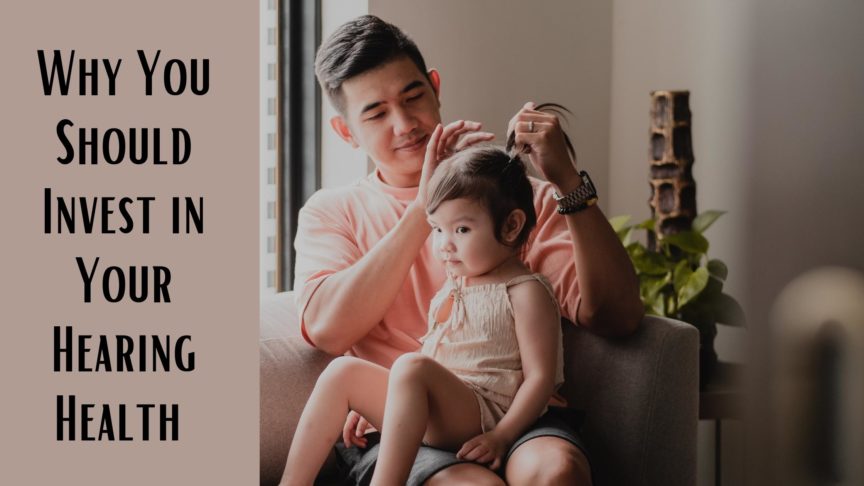- Best Practices for Safely Changing Hearing Aid Batteries - May 6, 2025
- The Connection Between Stress and Tinnitus - April 7, 2025
- Breaking Barriers to Hearing Health with Mobile Audiometric Testing Services - March 3, 2025
Hearing loss is a condition that impacts millions upon millions of Americans. Not only are people with hearing loss experiencing difficulty communicating, but their friends and families often feel the stress on their relationships, as well.
It’s a condition that disproportionately affects older people, as age continues to be the leading predictor of hearing loss. One in three people over the age of 65 has debilitating hearing loss. That number rises exponentially as we age into our later years. Half of all people aged 85 and older struggle with hearing loss.
Our hearing is a vital part of a vibrant life and an investment in our hearing health today is one that pays dividends.
What is age-related hearing loss?
Due to the normal aging process, we lose cells to decay. Many cells in our bodies repair themselves, however, a number of types of cells are non-regenerative. That means that when the cells become damaged, they do not repair or reproduce themselves. Such is the case with the sensitive cells of the inner ear.
Though delicate, they do a lot of the heavy lifting during the process of hearing. They receive noise from the external world and turn it into the sound information that is sent along the auditory nerve to the brain’s processing centers. Over time, or due to excessive noise, we lose some of these cells. They don’t come back, so we simply send less information from the outside world to our brain. The resulting experience is that we hear less.
Treatment of hearing loss
While hearing loss as a result of aging (the most common reason) or excessive noise exposure is not reversible or ‘curable,’ it is certainly treatable. Hearing aids or cochlear implants can restore much of the hearing loss, making verbal communication easy again. And yet, most people wait an average of ten years before they seek treatment.
Why people avoid treatment
There are a number of reasons that people avoid treating their hearing loss. Some view it as a marker of old age, others would prefer to avoid the issue and pretend it isn’t happening. Still, others don’t even know that hearing loss is playing a role in their lives! And finally, some people cite the cost of hearing aids as a reason to delay treatment, waiting for unstead until their lives are unmanageable.
And while some hearing treatment options can be high, there are affordable options and payment plans available so that hearing aids can be accessible to more folks. Perhaps the real question we should be asking, though, is what is the cost of ignoring treatment?
The true cost of hearing loss
- Cost to relationships
Our relationships, from our closest to our most casual, rely upon communication. As hearing loss progresses, it becomes increasingly difficult to engage in conversation. In fact, as time goes by people with hearing loss might also begin to avoid conversations because they are frustrating and effortful. This type of behavior can even happen unconsciously.
This is particularly true in marriages. According to a recent study that surveyed people between 44 and 62 years of age whose partners had hearing loss , nearly half of the respondents stated that hearing loss was causing negative effects within their marriage.
- Cost to mental and emotional health
As people with hearing loss disengage from conversations and relationships, their sense of isolation grows. People with hearing loss are at an exponentially higher risk of depression, compared to people with healthy hearing.
- Cost to future well-being
It isn’t just our current health we are safeguarding, our future health relies upon healthy hearing more than you might suspect. People who experience hearing loss are more likely to experience dementia later in life. Without the abundant nature of sound stimulation and social engagement to occupy the brain, we become more susceptible to cognitive decline.
- Cost to professional life
Living with hearing loss can wreak havoc in your professional life. Meetings and any verbal communication become minefields. Our confidence suffers and performance, too.
- Cost of safety
If you’ve lived the majority of your life with healthy hearing, it’s likely that you rely heavily on sound cues to alert you of incoming danger. Traffic sounds, a warning from others, rushing waters on a hike…you probably make judgments and accommodations subconsciously at this point. As hearing loss progresses, you will become reliant upon an increasingly unreliable alarm system.
Benefits of treating hearing loss
Beyond repairing relationships, improving your marriage, finding more ease at work, the list goes on and on. But almost as important as finding a better hearing experience is the process of confronting your troubles directly. Addressing an issue head-on will always be intimidating and even scary, but the rewards of doing this are enormous. You gain self-confidence and pride when you’ve tackled a problem head-on, regardless of the outcome.
If you’re ready to confront hearing loss, schedule a hearing consultation with us today!

